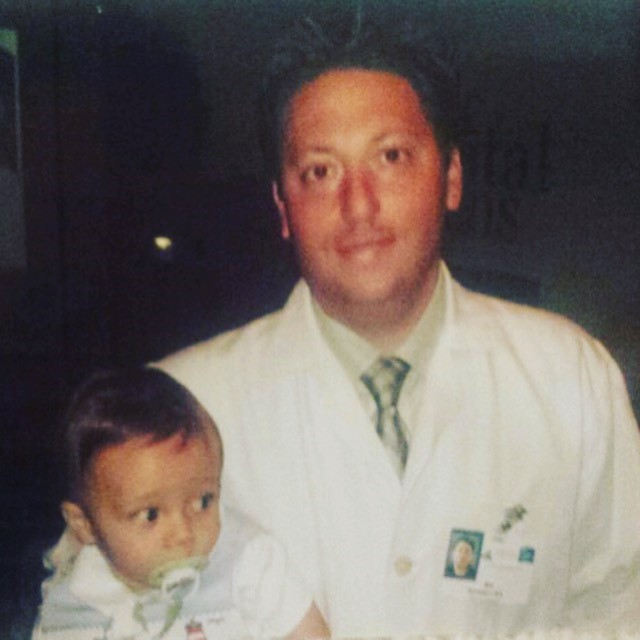Health
Dr. Ari Bernstein Advocates Digital Healthcare amid the Coronavirus Outbreak

Dr. Ari Bernstein’s passion and drive for digital healthcare are astounding and quite an inspiration, amid the COVID-19 pandemic. His entrepreneurial interest and dedication to improving the present healthcare system led him to invest in the diabetes-prevention program startup Fruit Street Health and join its medical advisory board. Currently, Dr. Ari Bernstein, MD, is an advisor for Fruit Street Health and CovidMD, telehealth platforms revolutionizing telehealth in the US.
Digital healthcare can play a pivotal role when it comes to limiting the spread of novel coronavirus; it can help flatten the curve by maintaining social distancing while extending treatment. Digital healthcare technology also can help to manage the disease through early detection of symptoms. It can also help facilitate remote monitoring, thereby minimizing exposure risks for health workers while effectively monitoring patients.
Dr. Bernstein shares that more individuals are using self-service digital health tools for risk-assessment. Telehealth is bringing practitioners and patients closer within the safety net of four walls. On the other hand, artificial intelligence and other intelligent technologies are innovating the healthcare systems.
Dr. Bernstein, who is board-certified by the American Board of Internal Medicine, is passionate about healthcare to the extent of being among the pioneers taking healthcare digital—especially during this period of health care crisis and movement restrictions.
Growing up in New York, Dr. Bernstein always had an interest in healthcare as far back as he can remember. His interest in medicine and science began to spark early on, eventually leading him to study pre-med and psychology at Long Island University.
About Dr. Ari Bernstein, MD
Dr. Ari Bernstein graduated from Long Island University magna cum laude with a 3.9 GPA in his psychology major and went on to pursue medical school at St. George’s University School of Medicine. After graduation from medical school, Dr. Bernstein went on to complete his residency in internal medicine at NewYork-Presbyterian Queens. Dr. Bernstein has extensive medical experience, which includes urgent care, primary care, emergency medicine, internal medicine, sports medicine, hospital medicine, health and wellness, nutrition and weight loss, pain management, as well as healthcare administration. He is also a strong leader with an interest in improving healthcare teams to deliver top-notch patient care.
Health
Snack Smarter: The Rise of Low-Calorie Almond Butter for Active Lifestyles

The snack aisle is shifting. For those who balance a busy life with a commitment to health and fitness, the rise of low-calorie almond butter offers a new way to snack smarter. American Dream Nut Butter is at the center of this change, blending clean ingredients with dessert-inspired flavors and added protein to create almond butter that is both nutritious and enjoyable.
Why Almond Nut Butter Is Key to Clean Eating
As consumers become more mindful of their food choices, the spotlight is increasingly on nutrient-dense snacks that provide sustained energy without excess calories. Almond butter, especially in low-calorie varieties, meets this demand by offering a rich source of healthy fats, fiber, and protein in a compact form. Compared to traditional spreads, such as peanut butter, almond butter often provides a smoother, lighter alternative with a different nutritional profile.
For those who track macros or embrace meal prepping, almond nut butter fits neatly into their plans. Its balance of fats and protein supports satiety, helping to keep hunger at bay between meals or during workouts. American Dream Nut Butter elevates this concept with high-protein options that blend the wholesome qualities of almonds with a subtle sweetness inspired by classic desserts.
How Much Protein is in Low Calorie Almond Butter for High Performance?
One common question around almond butter is: how much protein does almond butter contain? While natural almond butter provides a moderate protein boost, American Dream Nut Butter takes it a step further by creating blends that enhance protein content without relying on artificial sweeteners or fillers. This approach suits those seeking fuel for recovery or sustained energy throughout their day.
These protein-enhanced almond butters can work as a pre-workout snack, a post-exercise treat, or simply as a midday pick-me-up that aligns with a health-conscious lifestyle. The brand’s small-batch production method ensures each jar maintains a fresh, creamy texture that spreads easily or drizzles beautifully over everything from oatmeal to fruit.
Buy Almond Butter: Unique Flavors from American Dream

American Dream Nut Butter distinguishes itself with unique flavor profiles, such as Cinnamon Toasties and Cookie Batter. These offerings embrace the idea that healthful snacks can still delight the palate, using clean, natural ingredients to create indulgent taste experiences without sugar bombs or artificial additives. Each batch is hand-whipped in-house, reflecting the brand’s commitment to quality and care.
Their dedication to natural flavors and nutrient density allows consumers to enjoy a dessert-inspired snack while keeping their wellness goals intact. Whether you’re looking to buy almond butter that tastes like a treat or are curious where you can find almond butter crafted with both nutrition and flavor in mind, American Dream Nut Butter offers an accessible option.
Almond Nut Butter: Fuel for Athletes and Busy Parents
Almond butter’s versatility makes it appealing for a wide range of active lifestyles. For athletes, it provides a balanced blend of nutrients that supports energy and recovery without unwanted additives. For busy parents or professionals juggling multiple demands, it’s a convenient, clean snack that fits into hectic schedules without compromise.
The brand’s YouTube channel offers video insight into how these nut butters are crafted, revealing the hands-on process that ensures quality in every jar. By choosing American Dream Nut Butter, consumers support a product that embodies family values and a personal story of overcoming dietary challenges to create wholesome alternatives that everyone can enjoy.
Where Can You Find the Best Almond Butter & More? The Future Is Here
The growing interest in low-calorie nut butter reflects a broader shift in how people approach snacking—valuing nutrition, flavor, and mindful eating in equal measure. American Dream Nut Butter’s approach, which combines protein-rich formulas with all-natural ingredients and enticing flavors, shows how almond butter, peanut butter, and cashew butter can evolve from a niche health food into a daily staple for those who want to snack smarter.
For more on the evolving nut butter market and how it aligns with fitness trends, check out this feature on the rise of healthy high-protein nut butter. To explore American Dream Nut Butter’s full collection and shop their almond butter selections, visit their website.
American Dream Nut Butter invites you to experience healthy nut butters that strikes a balance between enjoyment and mindful nutrition—perfect fuel for active days and wellness routines alike.
*Images sourced from American Dream Nut Butter
-

 Tech4 years ago
Tech4 years agoEffuel Reviews (2021) – Effuel ECO OBD2 Saves Fuel, and Reduce Gas Cost? Effuel Customer Reviews
-

 Tech6 years ago
Tech6 years agoBosch Power Tools India Launches ‘Cordless Matlab Bosch’ Campaign to Demonstrate the Power of Cordless
-

 Lifestyle6 years ago
Lifestyle6 years agoCatholic Cases App brings Church’s Moral Teachings to Androids and iPhones
-

 Lifestyle4 years ago
Lifestyle4 years agoEast Side Hype x Billionaire Boys Club. Hottest New Streetwear Releases in Utah.
-

 Tech7 years ago
Tech7 years agoCloud Buyers & Investors to Profit in the Future
-

 Lifestyle5 years ago
Lifestyle5 years agoThe Midas of Cosmetic Dermatology: Dr. Simon Ourian
-

 Health6 years ago
Health6 years agoCBDistillery Review: Is it a scam?
-

 Entertainment6 years ago
Entertainment6 years agoAvengers Endgame now Available on 123Movies for Download & Streaming for Free
